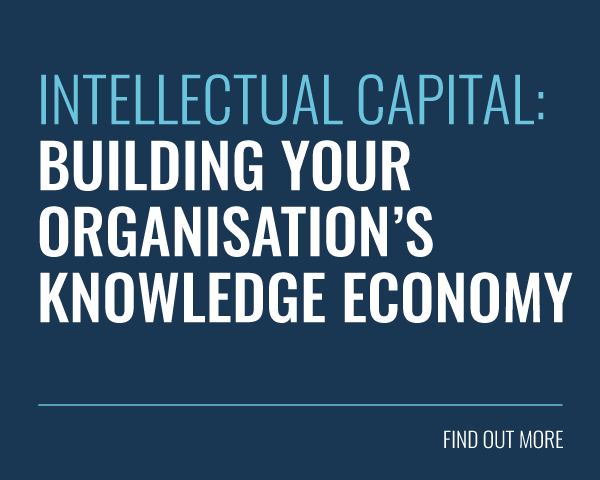 When it comes to learning and development, knowledge sharing can be a training manager’s best friend. A system that allows knowledge sharing takes some of the load off by letting learners with questions find the experts with the answers.
When it comes to learning and development, knowledge sharing can be a training manager’s best friend. A system that allows knowledge sharing takes some of the load off by letting learners with questions find the experts with the answers.
In many organisations, the knowledge management system and the learning management system are one and the same. Employees log on to learn what they need to do their jobs but, if we define an expert as someone who has learned all they need, what reason do they have to access the LMS?
The principle of connecting learners and experts is sound, but in practice, engaging experts with the L&D programme can be challenging. If it’s something you’re struggling with, here are a few things to consider:
1. Make knowledge sharing part of the culture
First, take a look at your organisational culture. What is the default behaviour when it comes to sharing knowledge? Are employees encouraged to ask for clarification, or are they scared of exposing their ignorance? Do your experts freely engage with other employees, or do they hoard their knowledge to maintain their expert status?
If knowledge isn’t flowing freely in your organisation, it might be the result of bad cultural habits.
2. Include mentoring in performance reviews
One step towards creating a knowledge-sharing culture is to measure experts’ contributions and evaluate them as part of their performance reviews.
In this way, the status of ‘expert’ doesn’t just reflect how well the individual knows the topic; it also shows how good they are at passing their expertise on to other people.
As an added bonus, while your experts work to demonstrate their teaching ability, this behaviour will trickle down to everybody else in the business, thereby making knowledge sharing ‘the way we do things here’.
3. Look at your learning platform – would you visit?
Does your learning delivery method engage your learners, or do you have to beg them to visit? These days, most applications are designed with a greater focus on user experience. Businesses hire UX professionals to reduce friction and make all tasks as intuitive as possible.
Sadly, learning platforms have been slow to adopt this trend and many of them seem awkward and outdated. At a time when your learners have grown to expect a certain quality from their applications, anything below that standard will frustrate them and possibly drive them away altogether
4. Challenge your experts with more learning opportunities
If your experts have consumed everything your training programme can provide, a standard learning platform is hardly going to be their destination of choice. If this is where you intend to connect learners and experts, then you’ll need to give the experts more opportunities to learn.
Try reaching out to bigger experts from outside of your organisation. You could arrange a webinar, record an interview or simply post an article. Challenging your experts to think outside of the box can give them the motivation they need to reconnect with the learning programme.
5. Start a discussion
If a conversation happens around their area of expertise, your experts will be more inclined to chime in and offer their perspective. If you want to drive experts to your learning platform, make sure that this is the place where all of the discussions happen.
If you really want to motivate them, give your discussion a contrarian or controversial title. For example, if you’re targeting your health and safety expert, you could ask ‘has health and safety gone too far?’
6. Show them what their contribution means
It doesn’t take an expert to know that when knowledge is shared, the entire organisation benefits. This is one of those common-sense facts that goes without saying, but common sense doesn’t motivate anybody. If you want your experts to be more involved with the training programme, you need to show each one what their individual contribution means.
The easiest way to do this is to use a system specifically designed to manage interaction between learners and experts. These systems keep a running tally of which questions have been asked, who answered them and how many other people found the answers useful.
7. Make a competition of it
Following from the previous point, if you have a system in place that tracks each expert’s contribution, the next step is to pit them against each other. Many of today’s most engaging applications include leaderboards displaying the top contributors or those with the most points.
This competitive element lets the user experience the platform more as a game or a competition. If your experts happen to be fond of their lofty status, they’ll go out of their way to help, even if it’s just to knock another expert off of the top spot.
Having a lot of experts in your business is useful only if they are able to share their knowledge. These tips can help you identify any communication barriers, find ways to engage your experts and unlock enormous growth potential. If you’re looking for more ways to boost communication in your business, click the button to download our social learning white paper.






